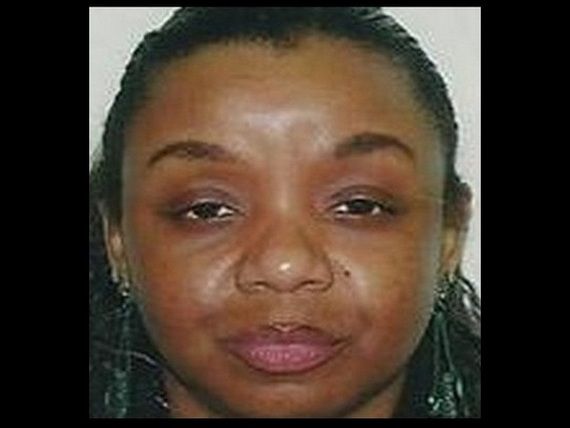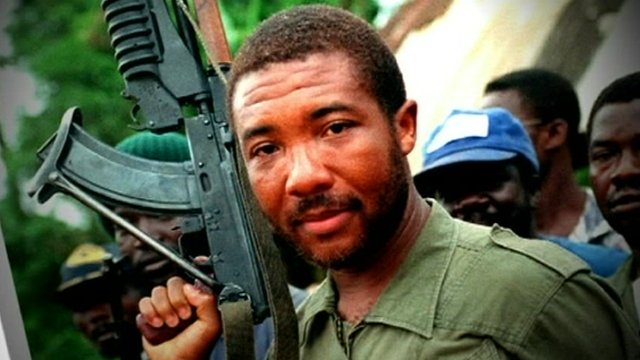Charles Taylor’s Fate: Will He Be Back in Liberia?
It took ten years to reach this point but finally, on Thursday, September 26, 2013, Appeals Chamber judges at Special Court for Sierra Leone (SCSL) in The Hague will determine whether former Liberian president Charles Taylor will return to Liberia or spend most or possibly the rest of his life in jail.
When Taylor left the Liberian presidency to seek asylum in Nigeria in 2003, after a SCSL indictment against him had already been issued, he told the people of Liberia that “God willing, I will be back.” He was back in Liberia in 2006 but only temporarily, as he was being transferred to the custody of the SCSL in Freetown, following his arrest in Nigeria. The verdict delivered by the SCSL’s Appeals Chamber on Thursday will determine whether Taylor will finally return to Liberia.
In April 2012, the SCSL’s Trial Chamber convicted Taylor of aiding and abetting 11 counts of war crimes, crimes against humanity and other serious violations of international humanitarian law, committed by Revolutionary United Front (RUF) and Armed Forces Revolutionary Council (AFRC) rebel forces in Sierra Leone during the West African country’s 11 year civil conflict.
Taylor’s trial itself, reported on our trial monitoring site www.charlestaylortrial.org, lasted for about four years. The judges heard stories of RUF and AFRC rebel forces who paraded through Sierra Leone, hacking off the limbs of civilians, subjecting women and young girls to rape and other forms of sexual violence, and of drugged child soldiers who were ordered to kill civilians with guns and machetes.
Judges also heard stories of the role that “blood diamonds” played in Sierra Leone’s conflict: diamonds, which, according to witness testimony, Sierra Leonean rebel forces transferred to Taylor in return for arms and ammunition. In convicting Taylor of aiding and abetting crimes in Sierra Leone, the judges found that Taylor provided arms and ammunition, military personnel as well as operational and moral support to the rebel forces in Sierra Leone.
Without these forms of support from Taylor, the judges were convinced that many of the crimes would not have been committed and the conflict in the country would have ended earlier. Judges also said Taylor was guilty of planning RUF and AFRC attacks, including the invasion of the country’s capital Freetown in early 1999. In their verdict, judges called Taylor a “two-headed janus” who publicly proclaimed peace while secretly supporting the rebels to commit atrocities.
The judges, however, rejected the prosecution’s theory that Taylor was in a position of command and control over the rebels. Judges were also not convinced that Taylor ordered or instigated the commission of crimes, as alleged by the prosecution.
In May 2012, the judges sentenced Taylor to a jail term of 50 years. The prosecution had originally asked for a jail term of 80 years. But in his quest to walk out as a free man and possibly return to Liberia, Taylor’s fight did not end with his sentencing. He appealed the judgment of the Trial Chamber on 42 grounds. In his appeal, he not only argued against the grounds on which he was convicted, but also called his 50 year jail term “manifestly unreasonable.”
Prosecutors raised four grounds of appeal, including asking for an increase in Taylor’s 50 year jail term.
When Appeals Chamber judges read out their final judgment on Thursday, prosecutors and defense lawyers will be listening to hear key things of interest to them.
For defense lawyers, they’ll want an appeal judgment that overturns a Trial Chamber decision that Taylor helped in planning the rebel attacks in specific parts of the country, including Freetown.
They hope to hear that the Trial Chamber made systematic errors of law in its assessment of the evidence, including the judges’ reliance on “uncorroborated hearsay.”
The defense argues on appeal that by systematically failing to assess the reliability of such hearsay, that the trial judges erred in law and fact when they ruled that assistance provided to RUF and AFRC with awareness that they had committed crimes in the past consisted aiding and abetting of subsequent crimes.
Defense lawyers further argue that the Trial Chamber erred in finding that Taylor provided military and operational advice to RUF and AFRC, which constituted assistance to crimes, and that they erred in finding that Taylor was aware of shipment of arms from/via Liberia to Sierra Leone.
Prosecutors on the other hand will be hoping for Appeals Chamber judges to agree with them that the Trial Chamber was wrong to have acquitted Taylor on charges of ordering and instigating the commission of crimes, or that Taylor ought to have been sentenced to a jail term exceeding 50 years.
With all their expectations, both prosecutors and defense lawyers will be anxious to know whether a recent decision by Appeals Chamber judges of the International Criminal Tribunal for the former Yugoslavia (ICTY) in the case of General Momčilo Perišić will have an impact on the Taylor case.
Perišić, a former commander of the Yugoslav army, had been convicted by the ICTY Trial Chamber for aiding and abetting by facilitating military and logistical supplies to perpetrators of crimes in Bosnia and Herzegovina. On appeal, the Appeals Chamber of the ICTY reversed the Trial Chamber’s decision by establishing that for a person to be guilty of aiding and abetting, his/her conduct must be “specifically directed” to the conduct/crimes of the perpetrator.
The Trial Chamber had ruled that there was no “specific direction” requirement for a person to be convicted of aiding and abetting. In the eyes of the Trial Chamber judges, the aider and abettor’s conduct only ought to have had a “substantial effect” on the actions of the perpetrator.
For the Appeals Chamber, however, in the absence of said “specific direction,” Perišić could not be liable for aiding and abetting the crimes for which he had been convicted by the Trial Chamber.
SCSL Trial Chamber judges in their decision of April 26, 2012, referencing the ICTY Trial Chamber’s decision in Perišić, had ruled that there was no “specific direction” requirement for aiding and abetting.
In appealing the judgment of the Trial Chamber, Taylor’s defense lawyers raised this as a ground of appeal, arguing that the Trial Chamber was wrong to have ignored the “specific direction” requirement when it convicted Taylor of aiding and abetting the commission of crimes in Sierra Leone.
After the ICTY Appeals Chamber decision, many observers have wondered whether the SCSL Appeals Chamber will do the same and reverse the decision of the Trial Chamber. If SCSL Appeals Chamber applies the standard set by ICTY appeals judges in Perišić, then Taylor will be a happy man.
However, Taylor was not only convicted for aiding and abetting the commission of crimes in Sierra Leone, he was also convicted for planning attacks in various places including Sierra Leone’s capital, an attack that saw the commission of heinous crimes. That remains a worry for him.
It therefore remains to be seen whether Taylor’s promise to the Liberian people that he “will be back” becomes a reality.
BY Alpha Sesay
Stay with Sierra Express Media, for your trusted place in news!
© 2013, https:. All rights reserved.




